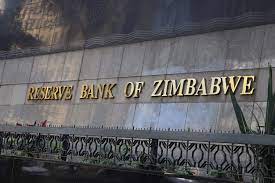HARARE, Zimbabwe – The Reserve Bank of Zimbabwe (RBZ) insists that it has enough Zimbabwe Gold (ZWG) notes in circulation to meet the country’s economic demands, even as citizens across the country continue to face serious challenges accessing the local currency in physical form.
RBZ Governor Dr. John Mushayavanhu issued a public statement assuring the nation that sufficient quantities of the ZWG currency are available and that the central bank is disbursing cash to commercial banks according to demand.
“The Reserve Bank has been disbursing adequate cash to banks in line with demand,” said Dr. Mushayavanhu. “As at June 12, 2025, the total ZWG deposits in the economy amounted to about ZWG16 billion, of which over ZWG207 million was cash held by banks. This meets optimal requirements and is sufficient to support daily deposits and withdrawals by the public.”
Despite these reassurances, people living outside Harare say they have yet to physically see or use the ZWG notes since the currency was introduced on April 5, 2024.
In provinces such as Bulawayo, Midlands, and as far south as Beitbridge, traders and ordinary citizens alike have largely continued to use the US dollar and South African rand in day-to-day transactions. In many areas, ZWG is used mainly in digital form, and only where accepted.
Many retailers and informal traders have resorted to giving change in foreign currency, due to the continued scarcity of ZWG banknotes. This ongoing challenge has sparked growing frustration and deepening mistrust among the public.
Even in the capital city, Harare—where access to financial infrastructure is stronger—residents report difficulties in obtaining ZWG notes from Automated Teller Machines (ATMs) and bank tellers. Several people have taken to social media and community platforms to express concern that, more than a year since its introduction, the currency is still not functioning as a widely used medium of exchange.
Economists and financial analysts argue that the central bank’s tight grip on the supply of physical cash is damaging public trust in the ZWG and risks undermining monetary reforms.
“One of the key roles of any central bank is to ensure that a currency is accessible and trusted by the population. In this case, availability is still a serious problem. Trust cannot be built on spreadsheets and figures alone,” said economist Tendai Ncube.
In defending the central bank’s actions, Dr. Mushayavanhu pointed to a recent rise in ZWG usage across digital platforms and payment systems.
“Usage of the local currency, ZWG, has improved significantly in the economy. Precisely, the proportion of local currency settlements on the National Payment System increased from ZWG7.86 billion in April 2024 to ZWG56.8 billion (43%) by May 30, 2025,” he said.
He also added that the RBZ is now working closely with banking institutions to improve the physical distribution of ZWG through banking halls and ATMs.
The Reserve Bank’s confidence in the currency comes on the back of ongoing efforts by the government to promote ZWG usage in public sector transactions, civil servant salaries, and local procurement systems. Authorities are hoping that increased usage, combined with currency and exchange rate stability, will help solidify the currency’s place in the economy.
However, critics say that until physical cash becomes reliably available across the country, any gains made in digital usage or policy reform will be met with skepticism on the ground.
“People want to touch and feel their money. Until the RBZ can make that possible for the average person in Gweru, Beitbridge or Mutare, trust in the ZWG will remain limited,” said consumer advocate Rumbidzai Moyo.
The ZWG was introduced as part of Zimbabwe’s latest monetary policy strategy to address hyperinflation and currency instability. It is backed by a combination of gold reserves, foreign currency, and precious minerals, with the central bank pledging to anchor its value on hard assets.
While official numbers suggest digital transactions using ZWG are rising, the disconnect between policy and public experience remains a major hurdle for the full adoption of the currency.
